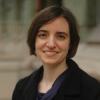When young Isidore's parents died in the late sixth century, his brother took over parental responsibilities. It is written that his brother's discipline became so severe that Isidore ran away from home, fleeing what some now believe to have been physically abusive behavior. Isidore's story bears repeating in our church today not only because his brother, Leander, was supposed to be his caregiver, but because his brother was also the archbishop of Seville, Spain.
Years later, Leander was canonized a saint along with Isidore, whose feast is commemorated April 4.
Pope Benedict XVI proclaimed during a public audience a few years ago that young Isidore "owed much to Leander, an exacting, studious and austere person who created around his younger brother a family context marked by the ascetic requirements proper to a monk."
While corporal punishment by Leander may have been more acceptable 1,400 years ago, it certainly isn't "proper" today. Unfortunately, the Vatican sometimes still makes saints, officially or unofficially, out of those responsible for crimes.
Gratefully, a new path is being forged to sainthood by everyday Catholics who are taking bold steps on behalf of children.
Just last month, Pope Francis told an Italian reporter that he thought the Catholic church was the only institution to have addressed abuse "with such transparency and responsibility." Then last week, the Vatican turned around and backed a new policy by Italian bishops that does not require church officials to report suspected child abuse. The bishops cited concerns over privacy. Luckily, Catholic advocates responded with concern for children. Groups like Bishop Accountability and Catholic Whistleblowers shine a light on the truth of abuse and keep the Vatican from perpetuating the ongoing cover-up.
Last week, the Vatican announced the creation of a new commission to advise Pope Francis on the abuse crisis. However, named among the commission's members was Boston Cardinal Sean O'Malley. It is the same O'Malley who has not released the full list of religious leaders who have been credibly accused of abusing children in his own diocese. However, when O'Malley won't release names, local Boston lawyer Mitchell Garabedian has made a habit of turning over lists of credibly accused religious leaders to the media in an effort to protect children.
Later this month, the Vatican will canonize two saints known both for their incredible strides but also for their systemic cover-up of abuse. Pope John XXIII issued a confidential document to bishops asking them to keep mum on abuse cases, and Pope John Paul II let known perpetrators such as Fr. Marcial Maciel Degollado of the Legionaries remain undisciplined. On the other hand, in the same month, Harvard Divinity School, which has a large Catholic student population, is prepared to honor Peter Isely, a nationally known clergy abuse survivor, with an award for his advocacy to protect children globally.
It can be easy to lose hope when I hear stories about church officials retaining the power to hide child sex crimes or commissions being led by those responsible for covering up abuse. I hear people say, "It would take a miracle to change the Vatican."
But I have no doubt the abuse crisis will eventually end because whistleblowers and lawyers, survivors and allies are working together to end the cover-up.
Years from now, we won't be talking about the Catholics who were made saints despite their participation in abuse or its cover-up. Instead, we will be talking about the Catholics who were made saints because they stopped the abuse crisis, the Catholics who faced the Vatican and did what every saint is known to do: perform a miracle.
[Nicole Sotelo is the author of Women Healing from Abuse: Meditations for Finding Peace, published by Paulist Press, and coordinates WomenHealing.com. She is a graduate of Harvard Divinity School.]
Editor's note: We can send you an email alert every time a Young Voices column is posted to NCRonline.org. Go to this page and follow directions: Email alert sign-up.



